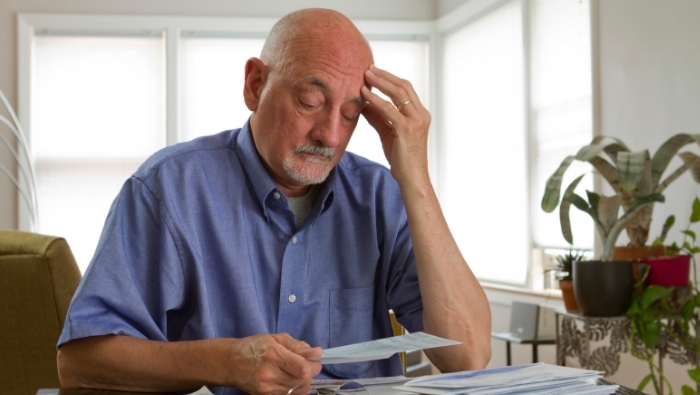What Happens to My Debts When I Die?
It can be a stressful situation to worry about what will happen with our family and outstanding debt after we die. Here’s what you need to know and possibly do to protect your loved ones and give yourself peace of mind.

Have you ever wondered what happens to your debts when you die?
The death of a loved one is always a difficult situation for anyone to go through. However, what many people do not understand is that the difficulties of losing a loved one can become financially hard beyond the funeral expenses. This is especially true when it comes to the debt of the deceased.
Many of Us Leave Behind Debt
According to the United States Federal Reserve, as of the first quarter of 2024, outstanding household debt was $17.69 trillion. And according to an Experian study, up to 73% of us will die carrying some debt and as many as 16% will leave this world not just in debt but in the red.
With this substantial debt looming over loved ones and their families, it becomes difficult to think about what will happen to this debt when we die. Will our loved ones be left owing the money? We question whether or not they will be able to pay off our debt or even if they will have to deal with harassment calls from collection agencies.
However, what many of us don’t know, is the government has set forth regulations which, in most cases, will keep our loved ones safe when we die.
You deserve a comfortable retirement.
What Happens to My Debts When I Die?
Let’s take a look at how a deceased’s debts get paid and under which circumstances the deceased’s family might be responsible for the debts.
How the Deceased’s Debts Get Paid
According to the Federal Trade Commission, in most cases, the living family members are not obligated to pay on the debts of their deceased loved ones. Instead, unless otherwise stated in the deceased family member’s will, the assets of the deceased are put into an estate.
Once the estate is created and all assets are liquidated into the account, those monies are used to pay off all outstanding debt. Afterwards, any money remaining are given to the heirs of the deceased.
When the Deceased’s Family Members Are Responsible for the Debt
There are numerous occasions, however, when there are not enough funds in the estate account to cover the outstanding debt of the deceased. In these cases, the outstanding debt will go unpaid. The only time that this debt must be paid by a surviving loved one, according to the Federal Trade Commission, is if the following is true:
- The loved one is a co-signer of the debt obligation.
- The loved one lives in a community property state.
- The loved one is the spouse of the deceased and lives in a state where the spouse is required to pay on particular types of debt owned by the deceased.
- The loved one is legally responsible for the estate and handles the estate against the state probate laws.
Settling an Estate That Has Outstanding Debt
The death of a loved one can come with numerous questions and legal ramifications. If the individuals responsible for the estate are unsure what to do, it is in the best interest of the loved ones to hire a lawyer to help them through the process of creating an estate and organizing the debt of the deceased.
The executor must make sure that the estate is responsible for repaying the debt before doing anything. If it’s clear that the estate is responsible for the debt, then (with some possible exceptions like homestead or set asides for minors) the executor will use assets within the estate to repay the debt. That might mean selling assets (investments, real estate, etc.) to raise cash for use in repaying the debts.
Related: Will I Inherit My Spouse’s Debts?
Dealing with Debt Collectors of a Deceased Loved One’s Debt
While there may be only a few instances where loved ones will be responsible for the debts of the deceased, there is always a possibility of the loved ones getting phone calls from collection agencies. However, under the Fair Debt Collection Practices Act, it is against the law for collection agencies to conduct abusive, unfair, or deceptive practices to try to collect debt of the deceased.
Instead, the collection agencies may call and discuss the debts in a professional manner with the deceased’s spouse, executor, administrator, or any other individual authorized to pay the outstanding debt. In any other case, the only reason a collector may speak with anyone close to the deceased would be to gather information to contact those authorized to pay on the debt.
It can be a stressful situation to worry about what will happen with our family and outstanding debt after we die. However, due to regulations and standards set by the United States government, there is no need for us to worry about what our loved ones will do, as they will be protected from having to pay on debt or from the harassment of the collection agencies.
Reviewed June 2024
Sign me up for a comfortable retirement!
Popular Articles
- Comparing Retirement Housing Options
- How We Retired With Almost No Savings
- How Retirees Can Live on a Tight Budget
- 9 Things You Need to Do Before You Retire
- What You Need to Know About Long Term Care Insurance Before You Retire
- You Didn’t Save Enough for Retirement and You’re 55+
- Could Debt Derail Your Retirement? A Checklist
- Your Emergency Fund In Retirement: A Comprehensive Guide
- Managing Your 401k In Your 50s


